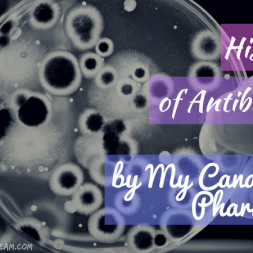Amoxicillin is a drug which has a high efficacy in the treatment of infectious, inflammatory and infectious diseases. Taking other agents may reduce the effectiveness of the antibiotic. Besides, the combination of this drug with alcohol has its own individual characteristics.
[ithshop code=”amoxicillin” tpl=”short” page_id=”934″ dummy=”txt”]
What Happens if You Mix Amoxicillin and Alcohol?
All spirits have toxic effects on human body, they are able to interfere with cellular metabolism and change it. Alcohol has a very negative efect on the central nervous system and liver cells.

Alcohol enters tissue and supersedes amoxicillin, which, of course, affects the effectiveness of the treatment. The therapeutic effect of the drug is especially decreased by strong alcoholic drinks.
The combination of Canadian Amoxicillin with alcohol may have an adverse effect on the liver, respiratory system, enhance allergic reactions, side effects related to gastrointestinal, central nervous and cardiovascular systems. Moreover, there may occur disulfiram-like reactions.
Side Effects Related to Digestive System
Amoxicillin may cause side effects related to gastrointestinal tract:
- sickness;
- vomiting;
- diarrhea;
- intestinal pains.
Alcohol also has a negative effect on the gastrointestinal tract, resulting in increased side effects.
But the main negative effect of this antibiotic and alcohol combination is imposed on the liver, as both substances have a hepatotoxic effect. This impact extent will depend on dosage and strength of alcohol and on individual characteristics, including heredity.
Side Effects Related to Respiratory System
The antibiotic can cause dyspnea. Alcohol can suppress respiratory center in the brain, which is often the cause of death in people with severe alcohol intoxication. Therefore, taking Amoxicillin and alcohol together you have a risk of developing breathing disorders, especially if your lungs or bronchi are currently exposed to the inflammatory process.
Of course, drinking a glass of wine will not do such a harm, but is it worth it?
Allergic Reactions
Canadian Amoxicillin is an antibiotic that belongs to semisynthetic penicillins group. The entire group of these drugs has an increased ability to cause allergic reactions, and therefore it’s not recommended to use this drug in the following allergic diseases:
- asthma;
- hay fever;
- atopic dermatitis and so on.
Alcohol can have unpredictable effects and enhance allergic reactions caused by the preparation. Allergic reactions can be of a very severe character. But the most unpleasant thing is that they occur suddenly and require immediate medical attention.
Side Effects Related to Central Nervous and Cardiovascular Systems
Both Amoxicillin and alcohol affect the central nervous system, and it is difficult to predict the result of a combined effect.
When combining this antibiotic and alcohol, you may experience a side effect related to the cardiovascular system – tachycardia. Infectious and inflammatory processes can further strengthen this condition.
Conclusion: You’d better not combine Amoxicillin with alcohol.
Posted by Dr. Himanshu Singh

 English
English Deutsch
Deutsch Français
Français Italiano
Italiano Español
Español Svenska
Svenska Português
Português 日本人
日本人 Dansk
Dansk Norsk
Norsk Suomi
Suomi Czech
Czech


